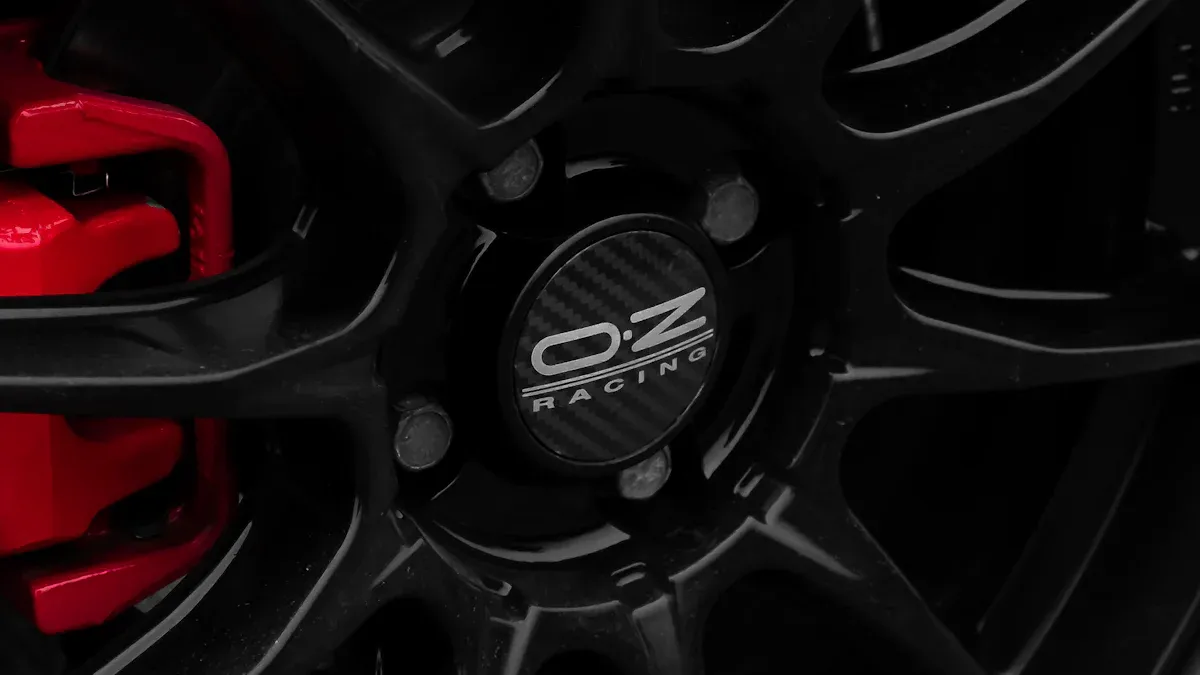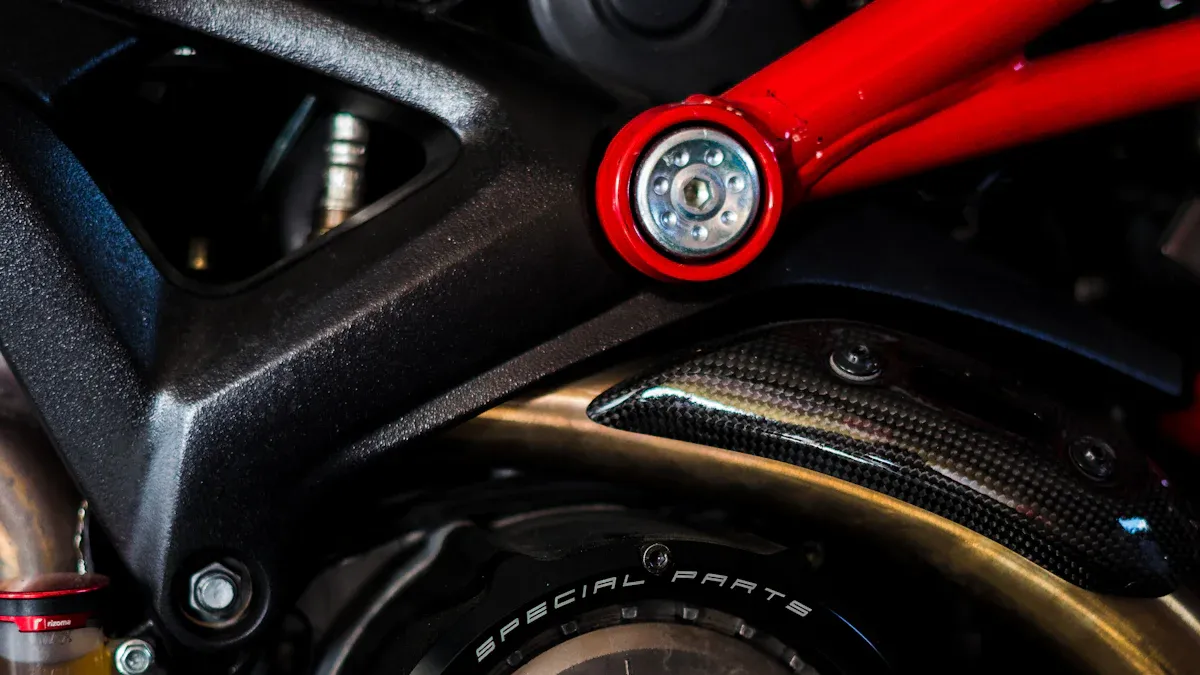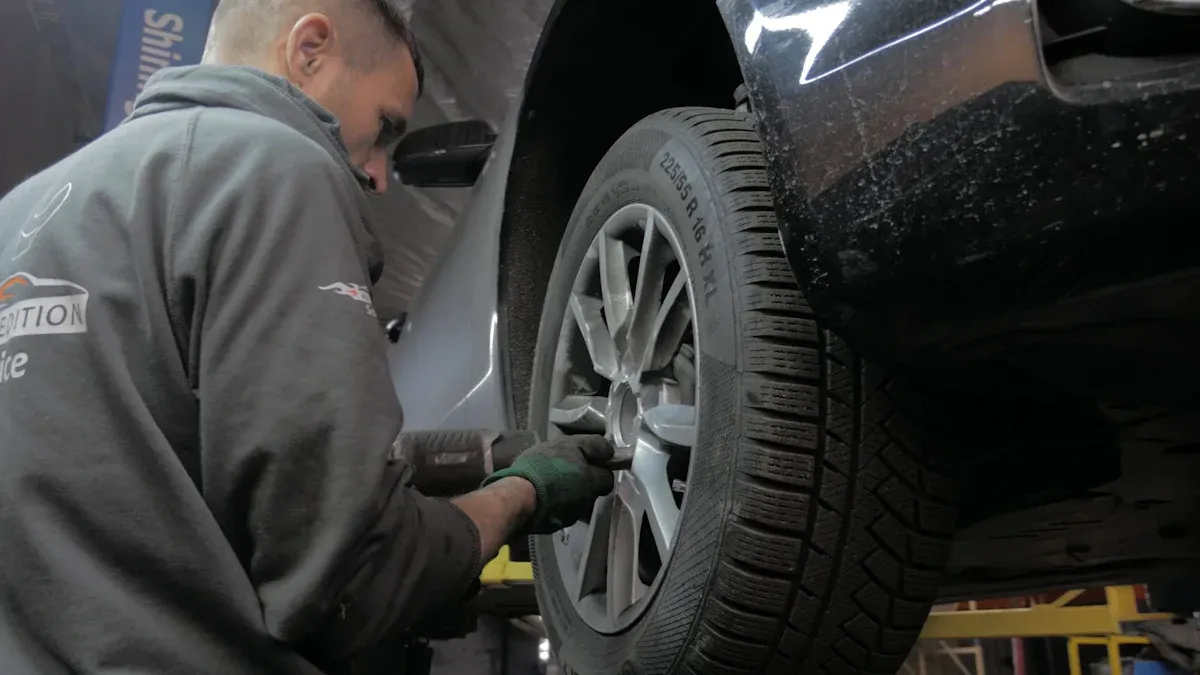
A faulty clutch master cylinder disrupts your vehicle’s clutch system. You may notice difficulty shifting gears or a soft clutch pedal. Contaminated or low clutch fluid often signals a problem. Fluid leaks around the cylinder also indicate trouble. Identifying these signs early helps you avoid costly repairs and ensures safe driving.
Key Takeaways
- Trouble changing gears might mean the clutch master cylinder is bad. Fix it soon to stay safe while driving.
- A squishy or soft clutch pedal could mean air is trapped or seals are worn out. Check the pedal often to stay safe.
- Leaking fluid near the clutch master cylinder shows a problem. Look for leaks to avoid bigger damage and expensive fixes.
Key Symptoms of a Faulty Clutch Master Cylinder

Difficulty Shifting Gears
You may notice difficulty shifting gears when the clutch master cylinder malfunctions. This happens because the cylinder fails to generate enough hydraulic pressure to engage or disengage the clutch properly. As a result, gear changes feel stiff or unresponsive. This issue can worsen over time, making driving unsafe.
Soft or Spongy Clutch Pedal
A soft or spongy clutch pedal often points to a problem with the clutch master cylinder. When air enters the hydraulic system or the seals inside the cylinder wear out, the pedal loses its firmness. You might feel the pedal sink under your foot without much resistance.
Clutch Pedal Fails to Return
If the clutch pedal doesn’t return to its original position after being pressed, the clutch master cylinder could be the culprit. This happens when the internal components of the cylinder fail, preventing the hydraulic system from functioning correctly.
Low or Contaminated Clutch Fluid
Low or dirty clutch fluid is another symptom of a faulty clutch master cylinder. Leaks or internal damage can cause the fluid level to drop. Contaminated fluid, often dark or murky, indicates debris or moisture in the system.
Fluid Leaks Around the Clutch Master Cylinder
Fluid leaks around the clutch master cylinder are a clear sign of trouble. These leaks reduce hydraulic pressure, leading to poor clutch performance. Check for fluid pooling under your vehicle or around the cylinder.
Grinding or Unusual Noises When Using the Clutch
Grinding or strange noises when pressing the clutch pedal may indicate a failing clutch master cylinder. These sounds often result from insufficient hydraulic pressure or air in the system.
How to Confirm a Faulty Clutch Master Cylinder

Perform a Visual Inspection
Start by visually inspecting the clutch master cylinder and its surrounding components. Look for any signs of wear, damage, or corrosion on the cylinder itself. Pay close attention to the seals and connections. Damaged seals often lead to leaks or reduced hydraulic pressure. Use a flashlight to check hard-to-see areas. A thorough inspection can help you identify visible issues before they worsen.
Check for Fluid Leaks
Fluid leaks are a common indicator of a faulty clutch master cylinder. Examine the area around the cylinder for any signs of leaking fluid. You might notice puddles under your vehicle or damp spots near the cylinder. If you find leaks, the hydraulic system may not function properly, which can affect clutch performance. Addressing leaks promptly can prevent further damage.
Test the Clutch Pedal Response
Press the clutch pedal and observe how it feels. A properly functioning clutch pedal should feel firm and responsive. If the pedal feels soft, spongy, or fails to return to its original position, the clutch master cylinder may be malfunctioning. Testing the pedal response is a simple way to assess the hydraulic system’s condition.
Monitor Clutch Fluid Levels and Condition
Check the clutch fluid reservoir to ensure the fluid level is adequate. Low fluid levels often indicate a leak or internal damage. Inspect the fluid’s color and consistency. Clean fluid should appear clear or slightly amber. Dark, murky fluid suggests contamination, which can harm the clutch master cylinder. Regularly monitoring fluid levels and condition helps maintain the system’s health.
What to Do If You Suspect a Faulty Clutch Master Cylinder
Consult a Professional Mechanic
If you suspect your clutch master cylinder is failing, consulting a professional mechanic should be your first step. Mechanics have the tools and expertise to diagnose the issue accurately. They can inspect the hydraulic system, check for leaks, and test the clutch pedal’s response. Attempting to fix the problem yourself without proper knowledge might worsen the situation. A professional can also advise whether a repair or replacement is the best course of action.
Tip: Describe the symptoms you’ve noticed to the mechanic. This information helps them pinpoint the problem faster.
Avoid Driving if the Clutch System is Severely Compromised
Driving with a faulty clutch master cylinder can be dangerous. If the clutch pedal feels soft or doesn’t return, your vehicle may become difficult to control. This increases the risk of accidents. Avoid driving until the issue is resolved. If you must move the car, do so cautiously and only for short distances.
Warning: Ignoring a compromised clutch system can lead to further damage, increasing repair costs.
Consider Repair or Replacement Options
Once the problem is confirmed, you’ll need to decide between repairing or replacing the clutch master cylinder. Repairs are often possible if the damage is minor, such as worn seals or small leaks. However, severe damage may require a complete replacement. Discuss the options with your mechanic to choose the most cost-effective and reliable solution.
Note: Replacing the clutch master cylinder ensures long-term reliability, especially for older vehicles.
A faulty clutch master cylinder can cause serious problems, like difficulty shifting gears or a weak clutch pedal. Early detection helps you avoid expensive repairs and keeps your vehicle safe.
- Key Reminder:
If you notice any symptoms, act quickly.
Tip: Consult a mechanic to diagnose and fix the issue before it worsens.
FAQ
What happens if you ignore a faulty clutch master cylinder?
Ignoring it can lead to complete clutch failure. This makes your vehicle undrivable and increases repair costs. Address the issue promptly to avoid further damage.
Tip: Regular maintenance prevents costly breakdowns.
Can you drive with a failing clutch master cylinder?
Driving with a failing clutch master cylinder is unsafe. It can cause gear shifting issues and loss of control. Avoid driving until the problem is fixed.
How much does it cost to replace a clutch master cylinder?
Replacement costs vary between $150 and $400, depending on your vehicle and labor rates. Consult your mechanic for an accurate estimate.
Note: Repairing minor issues may reduce costs.
Post time: Mar-28-2025

